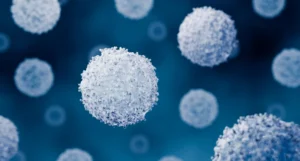- Introduction: The Unseen Power of Food Choices
- Key Statistics: How Common is Diet-Related Cancer?
- Mechanisms: How Poor Nutrition Leads to Cancer
- Major Dietary Factors That Increase Cancer Risk
- Hidden Carcinogens: Processed Foods and Beyond
- Obesity and Cancer: Why Excess Weight is a Game Changer
- Real-World Evidence: Landmark Studies and Conclusions
- Healthy Dietary Habits for Cancer Prevention
- Lifestyle Synergy: Combining Nutrition with Other Protective Measures
- Practical Tips: Building Your Anti-Cancer Grocery List
- Conclusion: Taking Control of Your Future Health
1. Introduction: The Unseen Power of Food Choices
Imagine picking up your fork and choosing your future health with every bite. This might sound hyperbolic, but accumulating research shows that diet can influence the risk of cancer more than many people realize. In fact, some experts argue that our daily eating habits may be as critical to preventing certain cancers as avoiding smoking.
Cancer is a complex disease with genetic, environmental, and lifestyle factors. Yet an often-overlooked piece of the puzzle is what we eat every day. From highly processed snacks to fresh fruits and vegetables, each food choice plays a part in shaping our body’s internal environment — for good or for ill.
2. Key Statistics: How Common is Diet-Related Cancer?
- Up to 30–35% of cancers worldwide are believed to be influenced by dietary factors, according to estimates by the World Health Organization (WHO) and the World Cancer Research Fund (WCRF).
- By comparison, smoking accounts for around 20–25% of cancer risk.
- Globally, over 19 million new cancer cases were reported in 2020 (International Agency for Research on Cancer), and many of these were tied to lifestyle factors that include diet.
Though figures vary by region and study, the overarching conclusion is clear: Diet matters immensely when it comes to cancer prevention.
3. Mechanisms: How Poor Nutrition Leads to Cancer
Cancer arises from a complex interplay of DNA damage, cellular mutation, and immune dysfunction. Poor nutrition can expedite these processes through:
- Oxidative Stress
Diets high in processed foods, sugars, and unhealthy fats contribute to oxidative damage at the cellular level. When free radicals overwhelm the body’s antioxidant defenses, DNA damage can accumulate, increasing cancer risk. - Chronic Inflammation
Excess body fat, high-glycemic diets, and certain additives foster a pro-inflammatory environment. Chronic inflammation is a known precursor to many diseases, including cancer. - Hormonal Imbalances
Overconsumption of refined carbohydrates and sugars leads to spikes in insulin, which may drive cell proliferation. Fat tissue also produces estrogen, elevating the risk of hormone-sensitive cancers like breast or endometrial cancer. - Immune Suppression
Key nutrients (vitamins D, C, E, selenium, zinc, etc.) are integral to healthy immune function. A nutrient-poor diet compromises immune surveillance, allowing abnormal cells to grow unchecked.
4. Major Dietary Factors That Increase Cancer Risk
- High Intake of Red and Processed Meats
Frequent consumption of processed meats (sausages, ham, bacon) is strongly linked to colorectal cancer. Processed meats often contain nitrates, nitrites, and other preservatives that may become carcinogenic in the body. - Excess Sugary and Refined Foods
High-glycemic foods encourage insulin resistance and chronic inflammation. Elevated insulin-like growth factor (IGF-1) can lead to faster tumor growth in certain cancers. - Low Fiber
Fiber helps remove carcinogens from the digestive tract, supports beneficial gut bacteria, and stabilizes blood sugar. Diets low in whole grains, fruits, and vegetables reduce these protective effects. - Insufficient Fruits and Vegetables
Plant-based foods contain antioxidants, vitamins, and phytochemicals that help neutralize free radicals and inhibit tumor development. Without them, you miss out on critical protective compounds. - Consumption of Highly Processed Snacks and Drinks
Many packaged foods are laden with artificial additives, flavor enhancers, dyes, and preservatives. These ingredients can disrupt normal cell function over time.
5. Hidden Carcinogens: Processed Foods and Beyond
Even foods labeled as “healthy” may harbor hidden carcinogens or endocrine disruptors, such as bisphenol A (BPA)from can linings or phthalates from plastic packaging. Cooking methods can also create carcinogenic byproducts:
- Charred or Overcooked Meats produce heterocyclic amines (HCAs) and polycyclic aromatic hydrocarbons (PAHs), both of which have been linked to DNA mutations.
- Reused cooking oils can accumulate oxidized lipids harmful to cells.
Staying informed about product sourcing and cooking methods can significantly reduce your exposure to these sneaky toxins.
6. Obesity and Cancer: Why Excess Weight is a Game Changer
Obesity is an independent risk factor for at least 13 types of cancer, including breast (postmenopausal), prostate, endometrial, colorectal, and pancreatic. Fat cells produce hormones and cytokines that can:
- Increase estrogen levels in the bloodstream
- Drive chronic, low-grade inflammation
- Alter insulin response and IGF-1 signaling
This hormonal and inflammatory dysregulation provides fertile ground for cancerous cells to thrive.
7. Real-World Evidence: Landmark Studies and Conclusions
- EPIC Study (European Prospective Investigation into Cancer and Nutrition)
Tracked over half a million participants, finding strong links between dietary patterns high in vegetables and fruits and reduced cancer risk, especially for colorectal and gastrointestinal cancers. - Nurses’ Health Study and Health Professionals Follow-up Study (Harvard)
Showed a clear correlation between diets high in processed foods and sugary drinks and an elevated incidence of obesity-related cancers. - World Cancer Research Fund Ongoing Reviews
Continually confirm that reducing red meat, sugary drinks, and ultra-processed foods, while increasing fruits and vegetables, can have a tangible impact on cancer rates worldwide.
These large-scale studies underscore one critical theme: our daily food choices have measurable effects on long-term cancer risk.
8. Healthy Dietary Habits for Cancer Prevention
Adopting a nutrient-rich, balanced diet can have a protective effect against cancer. Core principles include:
- Emphasize Plant-Based Foods
Fill at least half your plate with vegetables, fruits, legumes, and whole grains. - Choose Lean Proteins
Prefer fish, poultry, and plant-based proteins (tofu, beans) over processed red meats. - Stay Hydrated with Clean Water
Replace sugary drinks with water, herbal teas, or natural infusions. - Moderate Alcohol Consumption
Even moderate alcohol intake has been linked to certain cancers; lower consumption is generally healthier. - Opt for Whole, Unprocessed Choices
Shop the perimeter of the store where fresh produce and proteins are typically found. - Include Healthy Fats
Use extra virgin olive oil or other plant oils rich in unsaturated fats. Incorporate avocados, nuts, and seeds in moderation.
9. Lifestyle Synergy: Combining Nutrition with Other Protective Measures
Nutrition doesn’t exist in a vacuum. The impact of healthy eating grows exponentially when combined with:
- Regular Physical Activity
Exercise regulates hormones, reduces inflammation, and helps maintain a healthy weight. - Stress Management
Chronic stress can compromise the immune system. Mindfulness, therapy, and relaxation techniques can help. - Tobacco Avoidance
Smoking is a top risk factor for many cancers. Quitting drastically lowers risk. - Adequate Sleep
Poor sleep disrupts hormonal balance and impairs immune function, making cancer more likely.
10. Practical Tips: Building Your Anti-Cancer Grocery List
Consider adding these items to your cart:
- Cruciferous Vegetables (broccoli, kale, Brussels sprouts) – Rich in antioxidants and protective phytochemicals
- Berries (blueberries, raspberries) – Loaded with antioxidants like anthocyanins
- Garlic and Onions – Contain sulfur compounds that support detoxification and immune health
- Green Tea – High in catechins, which may help prevent DNA damage
- Whole Grains (quinoa, brown rice, oats) – Excellent source of fiber and essential nutrients
- Turmeric (with black pepper) – Curcumin has anti-inflammatory properties
- Legumes (lentils, beans, peas) – High in protein and fiber, promoting satiety and stable blood sugar
11. Conclusion: Taking Control of Your Future Health
Cancer is a multifaceted disease, influenced by genetics, environment, and behavior. While you can’t control every factor, you have significant power over what and how you eat. By prioritizing a balanced, minimally processed, and plant-rich diet, you actively reduce your cancer risk — starting with your next meal.
No single food or supplement can guarantee protection, but consistent, mindful choices can shift your overall risk profile. Think of every day as a fresh chance to align your nutritional habits with your health goals. You don’t have to wait for a diagnosis to begin fighting cancer.


